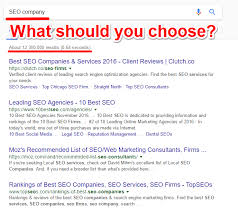The Importance of SEO Audits in Optimising Your Website
The Importance of SEO Audits in Optimising Your Website
Search Engine Optimization (SEO) audits are crucial for any website looking to improve its online visibility and ranking on search engine results pages. An SEO audit is a comprehensive analysis of your website’s performance, structure, and content to identify areas that need improvement to enhance your overall SEO strategy.
Why Are SEO Audits Important?
SEO audits provide valuable insights into how well your website is performing in terms of search engine rankings and user experience. By conducting regular SEO audits, you can:
- Identify technical issues that may be hindering your website’s performance
- Uncover opportunities for keyword optimisation and content improvement
- Analyse backlink profiles and identify toxic links that could harm your site’s ranking
- Ensure compliance with search engine algorithms and best practices
How Do SEO Audits Work?
An SEO audit typically involves a thorough examination of various aspects of your website, including:
- Technical SEO: This includes assessing factors such as site speed, mobile-friendliness, URL structure, and indexing issues.
- On-Page SEO: Reviewing the quality of content, keyword usage, meta tags, headings, and internal linking.
- Off-Page SEO: Evaluating backlink profiles, domain authority, and social signals.
The Benefits of Regular SEO Audits
Regularly conducting SEO audits offers several benefits for your website and online presence:
- Improved Search Engine Rankings: By addressing issues uncovered during audits, you can boost your site’s visibility on search engine results pages.
- Better User Experience: Resolving technical issues and enhancing content quality can result in a more user-friendly website.
- Informed Decision-Making: Data from audits can help you make strategic decisions to improve your overall SEO strategy.
In Conclusion
In today’s competitive online landscape, staying ahead with effective SEO strategies is essential for success. Conducting regular SEO audits is a proactive approach to ensuring that your website remains optimised for search engines and user engagement. By identifying areas for improvement through audits and implementing necessary changes, you can enhance your website’s visibility and attract more organic traffic over time.
23 Essential Questions Answered: Mastering SEO Audits for Improved Website Performance
- How do I do a full SEO audit?
- How much is an SEO audit?
- How to do SEO page audit?
- What are the steps in SEO audit?
- What is SEO audit?
- What are the different types of SEO audits?
- What are examples of SEO audit tools?
- Is an example of SEO audit tool?
- What is the difference between SEO analysis and an SEO audit?
- How do you perform an SEO audit?
- What is an SEO Audit Checklist?
- How do you conduct a SEO audit?
- What is a SEO audit?
- How do you conduct SEO audits?
- Why do we audit SEO?
- How to do SEO audit step by step?
- Why do we do SEO audit?
- How do I prepare for an SEO audit?
- Why do we need SEO audit?
- Why is SEO audit important?
- What is in an SEO audit?
- What can I expect from an SEO audit?
- What is SEO Audit Checklist?
How do I do a full SEO audit?
To conduct a comprehensive SEO audit for your website, it is essential to follow a systematic approach that covers various aspects of your online presence. Begin by analysing your website’s technical elements, such as site speed, mobile-friendliness, and indexing issues. Evaluate your on-page SEO factors, including content quality, keyword usage, meta tags, and internal linking structure. Assess your off-page SEO components like backlink profiles and social signals. Utilise tools like Google Analytics and Search Console to gather data on site performance and user behaviour. By combining these analyses with industry best practices and algorithm updates, you can create a detailed roadmap for enhancing your website’s search engine visibility and overall performance.
How much is an SEO audit?
When it comes to the cost of an SEO audit, pricing can vary depending on the scope and complexity of the audit. Some agencies may offer basic SEO audits at a lower cost, focusing on essential elements such as site structure, meta tags, and content analysis. On the other hand, more comprehensive SEO audits that delve into technical aspects, backlink profiles, competitor analysis, and detailed recommendations may come at a higher price point. It’s important to consider the expertise and reputation of the agency or consultant providing the SEO audit to ensure that you are investing in a thorough and valuable assessment of your website’s SEO performance.
How to do SEO page audit?
To conduct an SEO page audit effectively, start by analysing the technical aspects of the page, such as site speed, mobile responsiveness, and URL structure. Evaluate the on-page elements like content quality, keyword usage, meta tags, headings, and internal linking to ensure they align with SEO best practices. Additionally, review off-page factors including backlink profiles and social signals to gauge the page’s authority and relevance. Utilise SEO tools to gather data and insights, then create a detailed audit report outlining areas for improvement and actionable recommendations to enhance the page’s search engine visibility and user experience. Regularly monitoring and updating your SEO audit process will help maintain optimal performance for your web pages.
What are the steps in SEO audit?
When it comes to conducting an SEO audit, there are several essential steps involved in the process. The first step typically involves evaluating the technical aspects of a website, such as site speed, mobile-friendliness, and indexing issues. Next, on-page elements like content quality, keyword usage, meta tags, and internal linking are thoroughly examined. Off-page factors including backlink profiles and domain authority are also assessed. By following these systematic steps in an SEO audit, businesses can gain valuable insights into their website’s performance and identify areas for improvement to enhance their overall SEO strategy and online presence.
What is SEO audit?
An SEO audit is a comprehensive evaluation of a website’s performance, structure, and content to assess its search engine optimisation effectiveness. It involves analysing various factors such as technical aspects, on-page elements, off-page factors, and overall site health to identify areas that need improvement. By conducting an SEO audit, businesses can gain valuable insights into their website’s strengths and weaknesses, uncover opportunities for enhancement, and ensure alignment with search engine algorithms and best practices. Ultimately, an SEO audit serves as a roadmap for improving a website’s visibility, ranking, and overall online presence.
What are the different types of SEO audits?
When it comes to SEO audits, there are various types that businesses can undertake to assess and improve their online presence. The different types of SEO audits include technical SEO audits, content audits, backlink audits, and on-page SEO audits. A technical SEO audit focuses on the technical aspects of a website such as site speed, mobile-friendliness, and indexing issues. Content audits evaluate the quality and relevance of website content for SEO purposes. Backlink audits examine the quality and quantity of inbound links to a website. On-page SEO audits assess factors like keyword usage, meta tags, and internal linking structures. Each type of SEO audit plays a crucial role in identifying areas for enhancement and optimisation to boost a website’s search engine visibility and performance.
When it comes to conducting SEO audits, there are several tools available to assist in the process. Some popular examples of SEO audit tools include SEMrush, Ahrefs, Moz Pro, Screaming Frog SEO Spider, and Google Search Console. These tools offer various functionalities such as keyword analysis, backlink monitoring, site crawling, and performance tracking to help identify areas for improvement in a website’s SEO strategy. By utilising these tools effectively, website owners and digital marketers can gain valuable insights into their site’s performance and make informed decisions to enhance their online visibility and search engine rankings.
When it comes to conducting SEO audits, one popular example of an SEO audit tool is SEMrush. SEMrush is a comprehensive tool that provides in-depth analysis of website performance, keyword research, backlink profiles, and competitor insights. By utilising SEMrush or similar tools, website owners and digital marketers can gain valuable data and actionable recommendations to enhance their SEO strategies and improve their online visibility.
What is the difference between SEO analysis and an SEO audit?
When discussing the disparity between SEO analysis and an SEO audit, it is essential to recognise that they serve distinct purposes within the realm of search engine optimisation. An SEO analysis typically involves a more general overview of a website’s performance, focusing on metrics like keyword rankings, traffic sources, and overall visibility. On the other hand, an SEO audit delves deeper into the technical, on-page, and off-page aspects of a website to identify specific issues that may be impeding its SEO effectiveness. While an analysis provides a broad snapshot of performance, an audit offers a detailed examination with actionable insights for improving a website’s search engine ranking and user experience.
Performing an SEO audit involves a systematic evaluation of various elements on a website to identify areas for improvement in its search engine optimisation strategy. To conduct an SEO audit effectively, start by analysing the website’s technical aspects, such as site speed, mobile responsiveness, and indexing issues. Next, review the on-page elements like content quality, keyword usage, meta tags, and internal linking structure. Additionally, assess off-page factors including backlink profiles and domain authority. Utilising tools like Google Analytics and Google Search Console can provide valuable data for the audit process. By following a structured approach and using the right tools, businesses can gain valuable insights to enhance their online visibility and search engine rankings through an SEO audit.
What is an SEO Audit Checklist?
An SEO Audit Checklist is a structured list of key tasks and considerations used to assess the performance and health of a website’s search engine optimisation. This checklist typically includes various elements such as technical SEO factors, on-page optimisation, off-page factors, content quality, and user experience. By following an SEO Audit Checklist, website owners and digital marketers can systematically review and address areas that may be impacting their site’s visibility on search engines. It serves as a comprehensive guide to ensure that all essential aspects of SEO are evaluated and improved to enhance the overall effectiveness of the website’s online presence.
How do you conduct a SEO audit?
To conduct a comprehensive SEO audit, start by analysing the technical aspects of your website, such as site speed, mobile-friendliness, and indexing issues. Next, assess the on-page elements like content quality, keyword usage, meta tags, headings, and internal linking structure. Additionally, review your off-page SEO factors including backlink profiles and domain authority. Utilise various SEO tools to gather data and insights to identify areas for improvement. Finally, create a detailed report outlining the findings and recommendations for enhancing your website’s SEO performance based on the audit results. Conducting a thorough SEO audit is essential for optimising your website’s visibility and ranking in search engine results pages.
What is a SEO audit?
A SEO audit is a comprehensive evaluation of a website’s performance, structure, and content to identify areas that require improvement in order to enhance its search engine optimisation strategy. It involves a detailed analysis of various aspects including technical SEO factors, on-page elements such as content quality and keyword usage, as well as off-page factors like backlink profiles. By conducting a SEO audit, businesses can gain valuable insights into how well their website is performing in terms of search engine rankings and user experience, enabling them to make informed decisions to boost their online visibility and attract more organic traffic.
How do you conduct SEO audits?
When conducting SEO audits, the process typically involves a comprehensive analysis of various aspects of a website to assess its overall performance and identify areas for improvement. This includes examining technical elements such as site speed, mobile-friendliness, and indexing issues, as well as evaluating on-page factors like content quality, keyword usage, and meta tags. Additionally, off-page factors such as backlink profiles and domain authority are also scrutinised. By delving into these key areas and utilising tools like analytics data and SEO auditing software, businesses can gain valuable insights to enhance their SEO strategies and boost their online visibility effectively.
Why do we audit SEO?
Auditing SEO is a critical process that helps businesses understand the effectiveness of their current search engine optimisation strategies. By conducting SEO audits, companies can identify areas of improvement, uncover technical issues that may be impacting their website’s performance, and ensure compliance with search engine algorithms. Regular SEO audits provide valuable insights that enable businesses to make informed decisions to enhance their online visibility, improve user experience, and ultimately drive organic traffic to their website. In essence, auditing SEO is essential for maintaining a competitive edge in the digital landscape and continuously refining strategies for long-term success.
How to do SEO audit step by step?
To conduct an SEO audit step by step, begin by examining the technical aspects of your website, such as site speed, mobile-friendliness, and indexing issues. Next, assess your on-page SEO elements, including content quality, keyword usage, meta tags, headings, and internal linking. Then, delve into off-page SEO factors like backlink profiles and domain authority. Utilise tools like Google Analytics and Google Search Console to gather data for analysis. Identify areas for improvement based on the audit findings and create an actionable plan to enhance your website’s SEO performance. Regularly monitor and adjust your strategies to ensure ongoing success in optimising your website for search engines.
Why do we do SEO audit?
An SEO audit is conducted to assess the overall health and performance of a website in terms of search engine optimisation. By performing an SEO audit, businesses can identify key areas that require improvement to enhance their online visibility, increase organic traffic, and ultimately boost their search engine rankings. This comprehensive analysis helps uncover technical issues, content gaps, keyword opportunities, and backlink quality that may be impacting a website’s performance. Ultimately, the primary goal of conducting an SEO audit is to create a solid foundation for implementing effective SEO strategies that align with search engine algorithms and best practices, leading to improved online presence and user experience.
How do I prepare for an SEO audit?
Preparing for an SEO audit is a crucial step in optimising your website’s performance and visibility online. To get ready for an SEO audit, start by gathering key information about your website, such as current keyword rankings, traffic data, and backlink profiles. It’s also important to review your website’s content quality, meta tags, and overall user experience. Ensuring that your website is technically sound, mobile-friendly, and free from any indexing issues will help the audit process run smoothly. By having a clear understanding of your website’s current status and goals, you can provide valuable insights to the SEO auditor and work together to develop an effective strategy for improving your site’s SEO performance.
Why do we need SEO audit?
Understanding the importance of SEO audits is crucial for any website owner looking to improve their online presence. Conducting an SEO audit is essential because it provides valuable insights into the performance of your website, helping you identify technical issues, optimise content for keywords, assess backlink profiles, and ensure compliance with search engine algorithms. By conducting regular SEO audits, you can uncover areas for improvement and take proactive steps to enhance your website’s visibility, user experience, and overall search engine rankings. Ultimately, an SEO audit serves as a roadmap for implementing effective SEO strategies that can drive organic traffic and boost your online success.
Why is SEO audit important?
Understanding the importance of SEO audits is crucial for any website looking to improve its online presence. An SEO audit plays a pivotal role in evaluating the overall health and performance of a website, helping identify areas that require attention and improvement. By conducting regular SEO audits, businesses can uncover technical issues, keyword opportunities, content gaps, and backlink profiles that may be impacting their search engine rankings. Ultimately, an SEO audit is essential for ensuring that a website is optimised to meet the ever-evolving requirements of search engines and to enhance its visibility, user experience, and overall success in the digital landscape.
What is in an SEO audit?
An SEO audit is a comprehensive evaluation of various aspects of a website’s performance and structure to identify areas for improvement in its search engine optimisation strategy. During an SEO audit, experts typically assess technical elements such as site speed, mobile-friendliness, indexing issues, and URL structure. Additionally, on-page factors like content quality, keyword usage, meta tags, headings, and internal linking are reviewed. Off-page considerations such as backlink profiles, domain authority, and social signals are also analysed. By examining these key components, an SEO audit aims to uncover strengths and weaknesses in a website’s SEO efforts and provide actionable insights for enhancing its online visibility and ranking on search engine results pages.
What can I expect from an SEO audit?
When undertaking an SEO audit, you can expect a comprehensive evaluation of various aspects of your website’s performance and optimisation. This includes an in-depth analysis of your site’s technical SEO elements, such as site speed, mobile-friendliness, and indexing issues. Additionally, an SEO audit will assess your on-page SEO factors like content quality, keyword usage, meta tags, and internal linking structure. Off-page SEO components such as backlink profiles and domain authority will also be scrutinised. Overall, an SEO audit aims to identify strengths, weaknesses, and opportunities for improvement in your website’s SEO strategy to enhance its visibility and ranking on search engine results pages.
What is SEO Audit Checklist?
The SEO Audit Checklist is a comprehensive list of key tasks and considerations that are essential for conducting a thorough SEO audit of a website. This checklist typically includes items such as assessing technical SEO elements, analysing on-page factors like content quality and keyword usage, evaluating off-page factors such as backlinks and domain authority, and ensuring compliance with search engine algorithms. By following an SEO Audit Checklist, digital marketers and website owners can systematically review and address critical aspects of their website’s SEO performance to identify areas for improvement and enhance overall search engine visibility.





